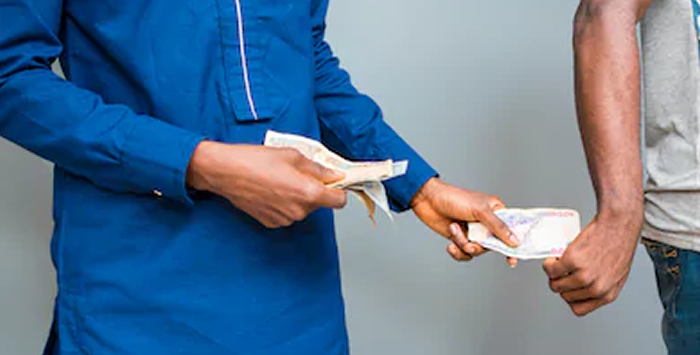


Nigerian public officials collected an estimated N721bn in cash bribes in 2023.
This was disclosed in the ‘Corruption in Nigeria: Patterns and Trends’ report, prepared by the United Nations Office on Drugs and Crime and published by the National Bureau of Statistics on Thursday.
According to the report, the amount paid as bribes equals 0.35 per cent of the entire Gross Domestic Product of the country.
“The average cash bribe paid was 8,284 Nigerian naira. While the nominal average cash bribe size increased since 2019 (from N5,754), this does not account for inflation.
“The inflation-adjusted average cash bribe in 2023 was actually 29 per cent smaller than in 2019 in terms of what could be bought with the money. Overall, it is estimated that a total of roughly N721bn ($1.26bn) was paid in cash bribes to public officials in Nigeria in 2023,” part of the report read..
Also, cash remained king among bribe takers and givers as more than 95 per cent of all bribes paid in 2023 were paid in monetary form (cash or money transfer).
However, in certain instances, food and drink (16 per cent), an animal (8 per cent), exchange for other services (7 per cent) or valuables (4 per cent) also served as a bribe.
Meanwhile, the survey found that in 2023, 5.1 bribes were paid on average by each bribe payer representing “A modest and statistically insignificant decrease in the frequency of bribe-paying from 2019, when on average 5.4 bribes were paid by each bribe payer. It is estimated that some 87 million bribes were paid in 2023 (compared with 117 million estimated in 2019) – the equivalent of an average of 0.8 bribes per adult.
“The frequency of bribery is, on average, higher in rural areas than in urban areas. In 2023, bribe-payers living in urban areas paid on average 4.5 bribes, while those living in rural areas paid on average 5.8 bribes.”
On a positive note, it was discovered that bribery is becoming less accepted in Nigeria as 70 per cent of Nigerians who were asked to pay a bribe in 2023, refused to do so on at least one occasion.
The report said that the bribery refusal rate was found to be highest in the North-West (at 76 per cent), although all zones recorded refusal rates above 60 per cent.
Also, the portion of Nigerians who think that bribery requests are acceptable to fast-track administrative procedures decreased from 29 per cent in 2019 to 23 per cent in 2023.
“Fewer citizens report suffering negative consequences after refusing bribe requests in 2023 (38 per cent) compared with 2019 (49 per cent). This suggests that Nigerians feel increasingly empowered to confront corrupt officials without fear of repercussions,” the report revealed.